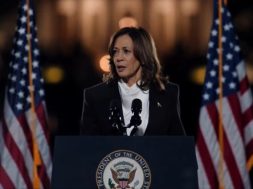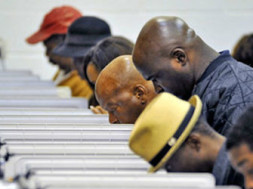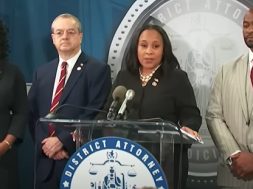
Louisiana Supreme Court Changes Violate Voting Rights Act – by Marc H. Morial

New York, NY – Louisiana has violated the Voting Rights Act by changing its voting procedures and processes in the way it plans to vote, according to a letter of objection filed with the U.S. Department of Justice by noted civil rights attorneys Ronald Wilson and William P. Quigley on behalf of National Urban League President and CEO Marc H. Morial and a coalition of Louisiana elected officials and leaders.
“Despite the fact that Justice [Bernette] Johnson has served on the Louisiana Supreme Court longer than any remaining Justice, and should be Chief Justice automatically, action has been commenced by some members of the Court to negate that fact and appoint instead a Justice who is junior to Justice Johnson and has less service on the court,” the letter reads. “In order to further their discriminatory purpose, the Court has enacted unprecedented changes in its voting processes and procedures which intentionally leave the voters from the majority African American New Orleans area voting district unrepresented, effectively reapportioning the Court to deny and dilute the voting rights of people in the New Orleans area.
“These voting changes violate the Voting Rights Act and, if allowed to undo federal civil rights litigation concluded decades ago, signal a reversal of decades of human and civil rights achievements of African American and other minority voters,” the coalition wrote.
Under the Voting Rights Act of 1965, Louisiana must submit any changes to voting procedures for preclearance by the Justice Department.
Morial was chair of the plaintiff’s committee in the landmark court case which resulted in the creation of Louisiana’s first majority African-American voter district on the Louisiana Supreme Court. The consent decree creating the seat temporarily expanded the number of Justices on the Court from seven to eight, to allow an elected representative from the new district in New Orleans to serve while allowing the incumbent Justices to avoid running in the majority African American district. Justice Johnson was elected to serve the district in 1994; the Court reverted to seven justices in 2000.
Shortly after Chief Justice Catherine Kimball tendered her resignation, she issued an unprecedented unilateral order outlining a new voting process to determine who was going to serve as Chief Justice of the Louisiana Supreme Court. This order recused Justice Johnson, as well as the justices who were elected after Johnson, but before the year 2000.
“The public is completely excluded from every phase of this determination,” the coalition wrote. Although temporary judges were appointed to cover the areas of the two justices claiming seniority over Justice Johnson, the order did not appoint an appellate judge from the New Orleans area to represent the voters of the Johnson’s seat.
“This was intentional,” according to the objection. “The Chief Justice advised that she intentionally left the majority African American district without representation because it had ‘too big a stake’ in the process to be included. This left the voters of the Court’s only majority African American district unrepresented in the Court’s plan to decide if the Justice elected from their area was a full member of the Court or not.”
Joining Morial in the objection are:
Diana Bajoie, City Council of New Orleans
Marie Bookman, plaintiff in Chisom v Roemer
Jared C. Brossett, Louisiana House of Representatives
Ronald Chisom, plaintiff in Chisom v Roemer
Arthur Morrell, Clerk of Court
Cynthia Morell, City Council of New Orleans
J.P. Morrell, Louisiana State Senate
Edwin Murray, Louisiana State Senate
Karen Carter Peterson, Louisiana State Senate
Cedric Richmond, U.S. House of Representatives
Nolan Rollins, CEO, Urban League of Greater New Orleans
Gregory Tarver, Louisiana State Senate
For more information, contact Ronald Wilson: 504.525.4361, cabral2@aol.com or William P. Quigley: 504.861.5591, quigley77@gmail.com







